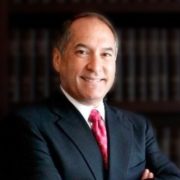THE Department of State (DOS) recently announced a change in policy concerning scheduling of immigrant visa interviews.
Previously, immigrant visa interviews were scheduled using a tiered approach to triage immigrant visa applications. The tiers, or order of priority were:
- Tier 1: immediate relative adoption visas, age out cases, special immigrant visas, and emergency cases;
- Tier 2: immediate relative visas (spouse or child of U.S. citizen), fiancées and returning residents;
- Tier 3: all other family-based petitions; and
- Tier 4: all other immigrant visas including employment cases.
Under the new policy, embassies no longer have to follow this tiered approach, but instead can use their own discretion or judgment on how to schedule immigrant visa interviews: “Embassies and consulates have broad discretion to determine how to prioritize visa appointments among the range of visa classes as safely as possible, subject to local conditions and restrictions.”
What this means is embassies no longer have to follow a rigid, tiered approach in scheduling interviews. Instead, if their calendar allows, they can schedule employment or other family-based cases, without worrying about prioritizing immediate relative cases.
I think this is a great idea, because embassies are in a much better position to gauge their own local conditions in terms of Covid restrictions, staffing, lockdowns, etc. Scheduling of immigrant visa interviews could be compared to reservations on an airplane, where the gate agent is in the best position to figure out seating arrangements on the aircraft, and if there’s a cancellation, to fill the seat with someone on the standby list. Similarly, as local conditions change, and more interview slots open up, and more staff returns to the embassies to take on a bigger caseload, the local embassies are better equipped to do the discretionary scheduling.
While this is good news, it would be great news if the existing backlog could be cleared as soon as possible so that people who have been patiently waiting for years can finally have their visas issued.
If your case has been “documentarily qualified” with the NVC, or you had already been interviewed at the embassy, but nothing has been happening with your case, you may want to consult with an attorney, to make sure your case is still on track, versus forgotten or fallen through the cracks.
* * *
Michael J. Gurfinkel has been an attorney for over 40 years and is licensed, and an active member of the State Bars of California and New York. All immigration services are provided by, or under the supervision of, an active member of the State Bar of California. Each case is different, and results may depend on the facts of the particular case. The information and opinions contained herein (including testimonials, “Success Stories,” endorsements and re-enactments) are of a general nature, and are not intended to apply to any particular case, and do not constitute a prediction, warranty, guarantee or legal advice regarding the outcome of your legal matter. No attorney-client relationship is, or shall be, established with any reader.
WEBSITE: www.gurfinkel.com
Follow us on Facebook.com/GurfinkelLaw, YouTube: US Immigration TV and Instagram.com/gurfinkellaw
Call Toll free to schedule a consultation for anywhere in the US:
1-866-487-3465
(866) – GURFINKEL
Four offices to serve you:
LOS ANGELES ∙ SAN FRANCISCO ∙ NEW YORK ∙ PHILIPPINES
(Advertising Supplement)







